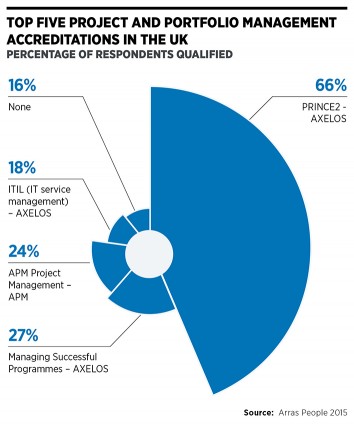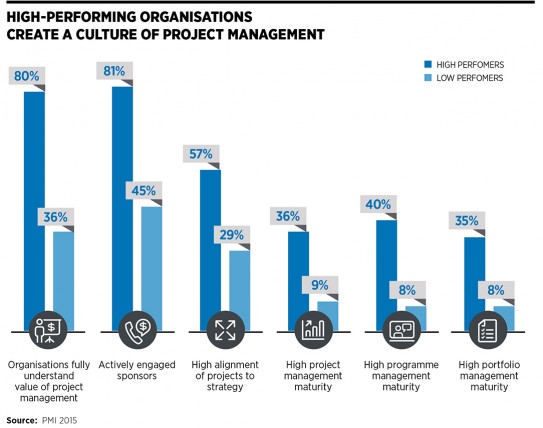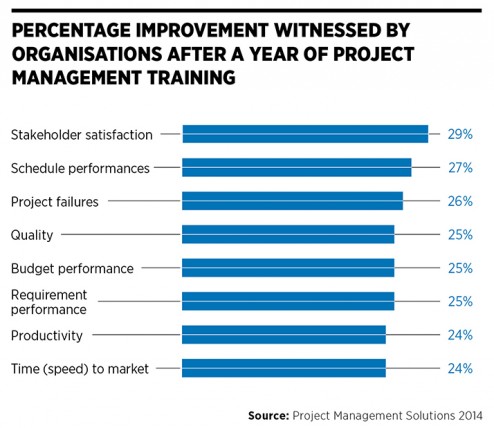The project management industry is beset by a skills shortage. The problem is twofold. On one hand not enough students are taking subjects that imbue them with technical nous – the so called STEM subjects of science, technology, engineering and maths.
On the other is the issue that people attracted to these subjects, and therefore careers associated with project management, do not necessarily make the best leaders. They are problem-solvers, puzzlers and technical obsessives, often lacking the skills required to manage large groups of people.
“Leadership is the attribute most lacking in project managers,” says Craig Stephens, vice president of international consulting at Epicor. “Typically, project managers come from a technical background and have progressed to positions of seniority based on attention to detail, but as projects become larger or more complex, other skills become more important.
A new breed of project manager needs to emerge within the industry – the highly driven project leader
“A project leader must inspire, motivate, negotiate and communicate. These behaviours are typically prominent in less technical people and less technical professions. Therefore, a new breed of project manager needs to emerge within the industry – the highly driven project leader.”
Project management is both an art and a science, according to Phil Dunmore, head of consulting UK at Cognizant, but too often people become project managers by default, moving from operations roles to project management positions without the requisite training. This is bad for business, he says.
“In order to tackle this issue, businesses can look to accredited organisations that formally recognise training programmes for project management. In addition, it’s now more commonly recognised that project management is a valid career and requires a skillset that has to be acquired,” says Mr Dunmore.
“Pleasingly, more students are being exposed to it at school and college. What’s more, a STEM background supports analytical thinking, articulate issues and numeracy to handle the financial aspect of the project. However, while all project managers need to be able to think analytically, be able to articulate ideas and have a good degree of numeracy, learning on the job is what rounds it all off.”
According to Mr Stephens, to create brilliant leaders of the future we need to invest in talent now and not by recruiting a load of wet blankets with no idea of how technical things come together, but by upgrading the current crop with multi-dimensional skills.
 He believes there are four watch words that will help the sector reach this happy situation. The first is education. The nature of project management means it is always changing, so leaders need to evolve leadership styles to suit each new permutation.
He believes there are four watch words that will help the sector reach this happy situation. The first is education. The nature of project management means it is always changing, so leaders need to evolve leadership styles to suit each new permutation.
Empowerment is the second important word. Project leaders adhere to industry standards and systems, but in addition to simply “getting on with it” they must create a shared vision of success for the whole organisation.
Mr Stephens says this implies the freedom to “inspire, prioritise, direct, support, challenge, delegate, negotiate, encourage and reward the project team”, all geared towards umbrella goals and with one eye on the bottom line.
It is a serious amount of responsibility, but it’s necessary to create trust in the process and in the leader. Chief executives, assuming they are not also the project leader, must foster this environment where people are encouraged to be totem bearers for the business.
The third word is knowledge. A respected leader is one who can bring experience to a project and breed confidence through his or her wisdom. This comes from experience, of course, backed up by theory and up-to-date qualifications.
Lastly monitoring is a crucial component. Leaders must be able to control projects and keep specific parts in check, as well as raising constructive challenges to operations if progress slows or plans start to lose relevance.
People skills are high on the agenda for Claire Arnold, founder and chief executive of Maxxim Consulting. She argues that project management is as simple as getting people to work together to deliver a predefined outcome, so a leader’s ability to rally people is central to the job.
For her, the constituent parts of a great project leader include being able to develop a shared purpose that runs the length of the team, as well as knowing when and how to signpost what has been achieved and what remains to be done.
Leaders must be prepared to “deviate from the script” and not stick rigidly to templates if circumstances change. They should know how to make work enjoyable and communicate on multiple stages, from top-level statements to one-to-one conversations in plain English.
“Good project management allows you to have clear roles and responsibilities that ensure continuity even if personnel change,” says Ms Arnold.
This assessment is echoed by Julie Wood, head of the global project management team at engineering and design consultancy Arup. She says project managers have to communicate succinctly and get straight to the point, but they must also be brilliant listeners.
“Good listening skills are often overlooked, but it’s an essential part of successful project management,” she says. “Many people hear what clients say, but never truly listen. You learn so much from your client by listening to their thoughts and priorities, so developing your skillset in this area is time well spent. Few people are natural ‘listeners’, so many can benefit from training in this area.”
Great leaders, therefore, must be communicators and ingratiaters, but they must also make quick and clear-minded decisions in the middle of turbulent environments. The world in which project leaders operate is increasingly “agile”, and the forces of change are proliferating and getting stronger by the day.
From new technology to globalisation, consumer behaviour to citizen journalism, projects must cope with more influences than ever before and, according to Richard Goold, partner at business transformation consultancy Moorhouse, the ability to anticipate, identify and react positively are increasingly sought-after qualities.
“There is an increasing need to manage projects and programmes in a way that departs from a linear approach to delivery,” he concludes. “We are seeing a greater dependency on agility, and the need to respond extremely quickly to competition, customers and market dynamics.”




